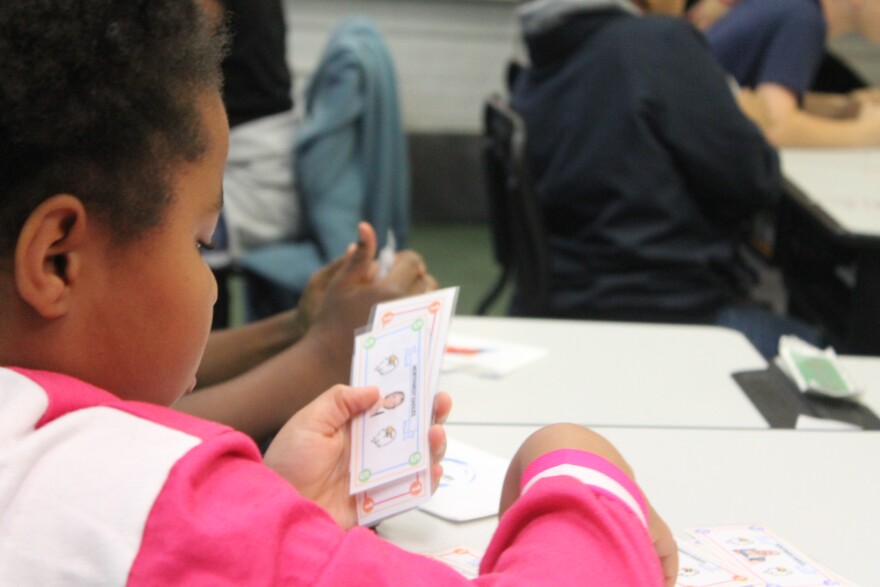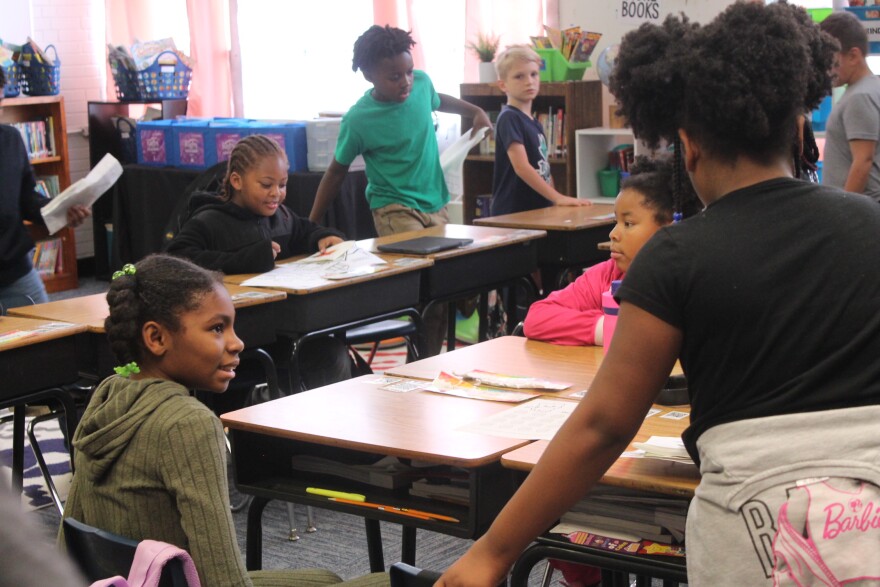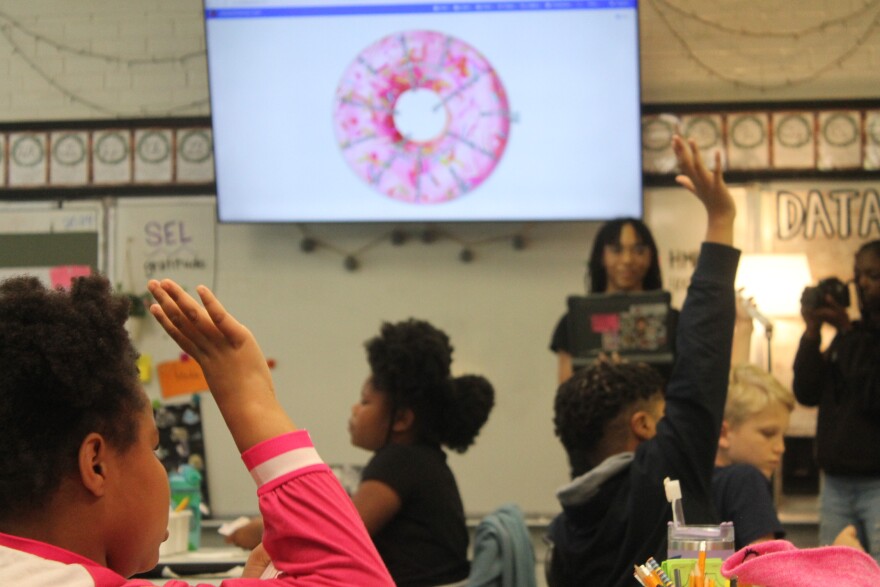At Northwest Elementary this week, a group of high school students taught introductory financial literacy lessons to 3rd graders. Fifteen 10th graders from the Lenoir County Early College High School had to bring what they learned in their economics class to a much younger audience.
Following lunch, Ms. Green's third-grade classroom turned their attention to a series of lessons on the basics of personal finance. The first lesson of the day was a big one: borrowing and lending.
Leading that lesson was Valentina Bassett and Kailey Moore.
“The central message I hope to convey is that they understand the integrity of borrowing and lending and that they have to give it back,” Bassett said.
It's a big concept for elementary kids to grasp. They're not going to be pulling out a car loan anytime soon. That's why you have to explain it in a way that relates, says Moore.
“We’re really incorporating things that kids like, like ‘Your friend needs a drink. Give them $2.00.’ or “You hear the ice cream trucks coming and your friend needs $6 for an ice cream cone,” Moore said. “Those are real kid-based things. You wouldn't see an adult running for an ice cream truck.”

To reinforce the lesson, the students played a game. With $50 of laminated, pretend money pass accented with their teacher’s face, they had to borrow and lend that money to each other. Bassett spun a wheel at the front of the room to determine who gave away money and who received it.
After a few rounds, it came time to pay it back. The kids paid off their debts and ended with an even $50 again.
The next lesson focused on budgeting and was led by a new set of 10th graders. Here Ms. Green’s 3rd-grade class learned the difference between needs and wants.
"So, imagine you’re in a candy store and think about the candies and all your favorite chocolate bars and gummy bears and other things like that. Well, those things are called wants,” William Anderson, one of the instructors, said.
For this activity, the kids had a menu of choices and chose how to spend their money. They could buy books, clothes, an Xbox gaming console, or a calculator, to name a few.
It was an exercise in budgeting. 3rd grader Luke gave up the expensive computer for some more practical items.
“The answer is to it is don't buy expensive things like your computer or phone because those take a lot of money,” Luke said. He chose, instead, to buy a charger and Wi-Fi.

The last lesson was on saving. To convey the importance of saving, the kids took part in a kind of experiment. To start they had $20 and could buy one sticker, or they could wait to earn more money and purchase even more stickers. The first go around, just one kid took the bite. The second time, a few more. By the end, kids could buy five stickers for all $50. Most of the kids held out till the end.
Lessons like these are not typical in the younger grades. They do learn how to do math with money in 2nd grade, but there is no focus on financial literacy.
In fact, the only requirement for financial literacy in North Carolina isn't until high school Travis Towne teaches that course — economics — at the Early College High School. He also helped the high schoolers prepare the lessons. He says it's important to start early.
“One of the things that we've really tried to do is push financial literacy knowledge in our schools, especially for areas that are in lower socioeconomic areas because a lot of them don't get that resource,” he said. He added, with that knowledge in hand, it’ll help students learn how to make wise financial decisions when they’re older.
Bassett taught her Borrowing & Lending 101 lesson to each of Northwest’s three 3rd grade classrooms. She said they had learned to focus on certain points to make the concepts stick with studets.
"We had someone at every table so people could ask questions, and we really just emphasized borrowing and lending,” she said. “We wanted to make sure it was instilled in them.”
The lessons were part of the Jump$tart Coalition, a nationwide organization that aims to raise awareness about the importance of financial education for young people. Lenoir County Early College High School is one of over 130 high schools across 44 states participating in Teen Teach-In events throughout April.



